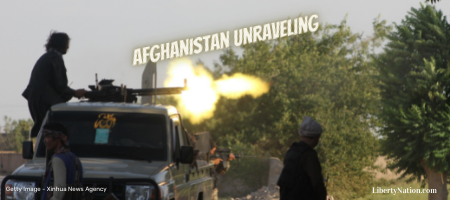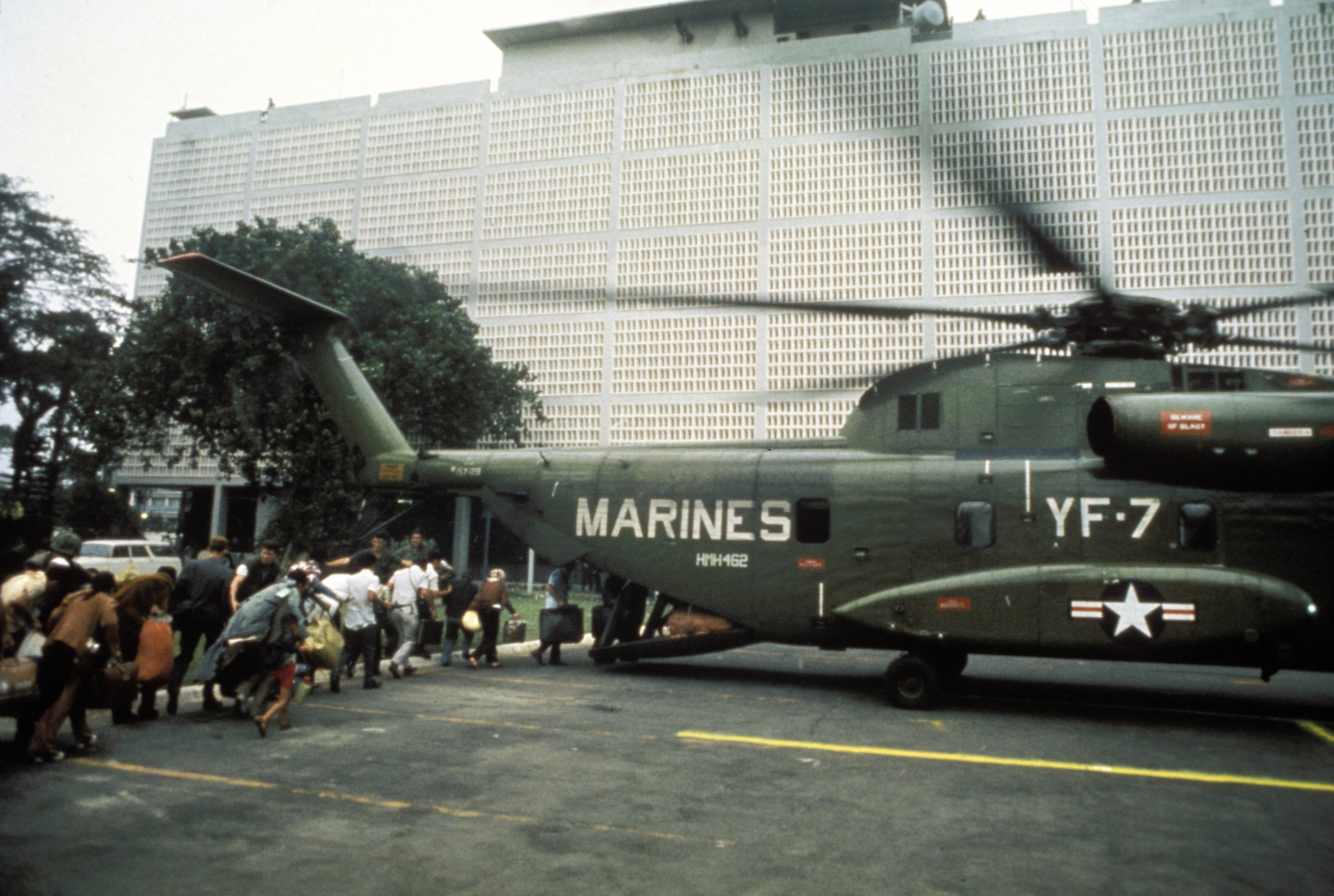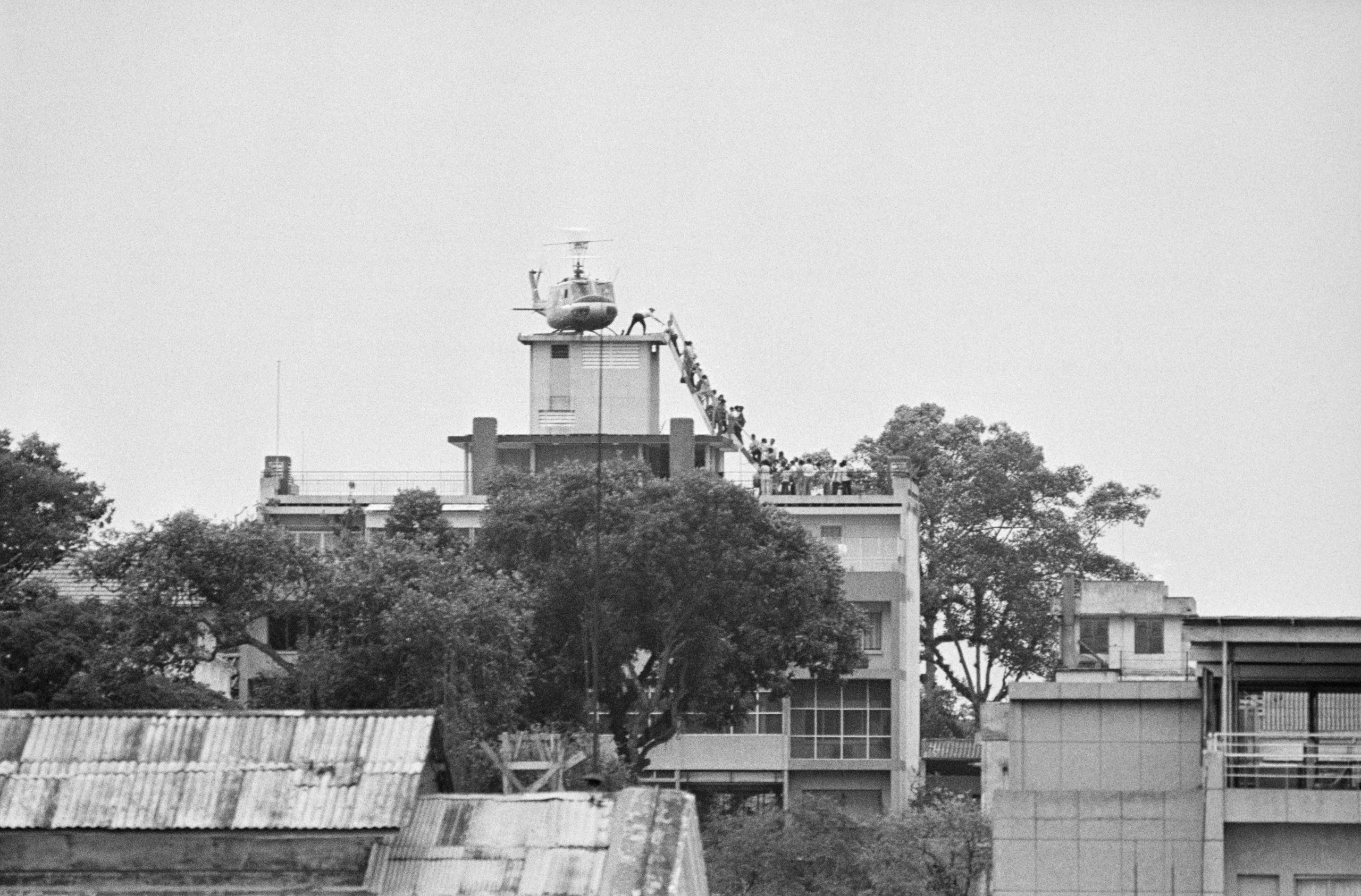It has taken countless thousands of Americans decades to recover from it. Most never have, many of them haunted by inescapable nightmares, from ceaseless guerilla warfare in the jungles of southeast Asia to the shameful treatment they received upon returning to their homeland.
 This week, those wrenching memories of the Vietnam War – the 58,000 Americans who died in it, the thousands of others who returned from it scarred for life, the violent demonstrations in the streets, a nation riven by dissent – have been painfully dredged up, brought back into the American psyche as the specter of another national humiliation at the conclusion of the longest war in American history presents itself.
This week, those wrenching memories of the Vietnam War – the 58,000 Americans who died in it, the thousands of others who returned from it scarred for life, the violent demonstrations in the streets, a nation riven by dissent – have been painfully dredged up, brought back into the American psyche as the specter of another national humiliation at the conclusion of the longest war in American history presents itself.
And while the Vietnam War provided a steady stream of horrifying visual images over the dozen years of U.S. military involvement, it was the very last moment of that war that will forever be etched in the memory bank of those who lived through it. Few can forget the pictures of desperate Americans fleeing the U.S. embassy in Saigon, the soon-to-be-former capital of the vanquished country we fought so long to save, hanging on to a departing helicopter atop the embassy for dear life, the full and final humiliation of the United States of America complete. Within hours, the embassy was overrun. North Vietnamese tanks rolled through the streets of Saigon. South Vietnam was no more.
No Way Out for LBJ
It was the shame-inducing end to the first defeat in American military history, in a war President Lyndon Johnson knew as early as 1965 could not be won – he told his wife, Lady Bird Johnson, in a tape released decades later, “I don’t see any way of winning.” And yet, he put his foot on the gas, dramatically escalating our involvement as the nation exploded in fury at the relentless march of body bags, young men dying on the other side of the world for a cause hardly explicable to them.

US Embassy, Saigon, April 30, 1975 (Photo by nik wheeler/Corbis via Getty Images)
LBJ would find no way out, militarily, politically, or personally. He would quit his race for a second term before it even got off the ground, a beaten and humiliated shadow of his former self. But the disastrous war that would become the indelible scarlet letter on his legacy would not end for another seven long years, and two administrations after he was all but drummed out of office.
And yet, as slow as the slog of those final years of the Vietnam War turned out to be, the final downfall of Saigon (soon after to be renamed Ho Chi Minh City) would come with surprising swiftness. On April 3, 1975, President Gerald Ford would begin to evacuate the country, with thousands of Americans and Vietnamese refugees eventually airlifted out of Saigon by helicopter. Throughout April, as the joint forces of North Vietnam and the rebel Viet Cong advanced on the capital, much like the Taliban closing in on Kabul in these last days, Ford would push Congress for one more round of funding to at least hold back the tide. But after years of bankrolling an unwinnable war, Congress was dead set against throwing any more good money after bad for a lost cause. U.S. ground forces had vacated South Vietnam two years earlier, and were thus unavailable to assist with either the final defense of Saigon or the evacuation. By April 30, the barbarians were approaching the gates of the U.S. Embassy, and the final escape was on. It became the largest helicopter evacuation in recorded history.
Indelible Memories
As the world braces for impact, will Kabul and Afghanistan, like Saigon and Vietnam, be thrown to the wolves following a 20 year-long investment of American blood and treasure? In a world where optics matter more than ever, how great will be the humiliation when a force – thought by most Americans to long ago be vanquished – gains its revenge and returns to power as the U.S. looks on, with our own people left unprotected from the final wrath of these jihadist murderers?
When George W. Bush sought the presidency in 2000, he vowed not to engage in “nation-building.” After 9/11, that pledge no longer held, and we looked to rebuild Afghanistan and Iraq in our own image. We learned little from the futility of Vietnam when we entered into this war of attrition in Afghanistan, which because of its landlocked, mountainous terrain, has proven over centuries to be unconquerable. Thus, both the Iraq and Afghanistan projects have ended ignominiously. The least we may hope for now is to avoid a lasting image of Americans being chased out of Kabul to bookend the awful one stamped in our memories of that final defeat in Saigon almost a lifetime ago.
~
Read more from Tim Donner.




